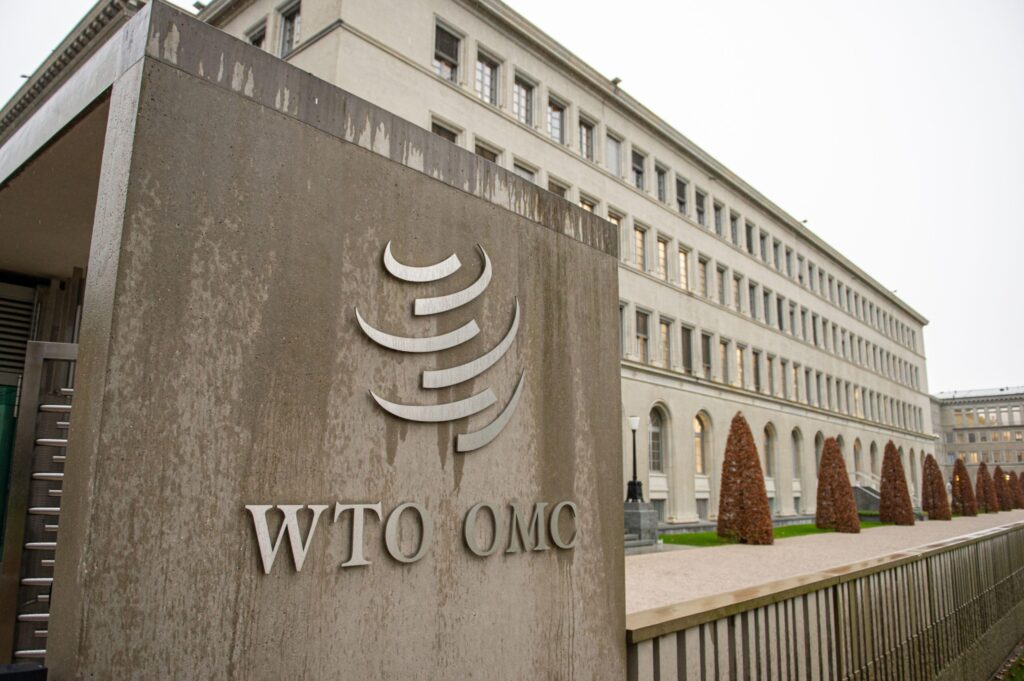The World Trade Organization has agreed to extend the suspension of e-commerce tariffs for two years after marathon negotiations in Abu Dhabi, but no agreement on other contentious trade issues, such as crackdowns on agriculture and fishing subsidies. I couldn't install it.
Speaking at the closing session, Director-General Ngozi Okonjo-Iweala called the WTO a “source of resilience” in a world rocked by geopolitical turmoil. He encouraged negotiators to continue discussing unfinished business.
Click here to follow our WhatsApp channel
Adding to the agenda of the Geneva-based body's 13th biennial ministerial conference, incumbent politicians from Brussels to New Delhi are protesting for relief from inflation and foreign competition. Dozens of elections will be held in major economies this year, as farmers, truck drivers and other workers feel pressure to vote.
Okonjo-Iweala, whose term ends in August 2025, told a news conference earlier in the week that “I said it was going to be tough trying to make a difference with these headwinds.” “I didn’t accomplish everything I wanted, but I think what I accomplished was pretty impressive.”
Talks that lasted 16 hours on Friday ended just after midnight, but the most important development was a last-minute agreement to maintain a moratorium on e-commerce until 2026. Some were also surprised to hear a European Union official say minutes before the draft agreement was announced that the week-long negotiations were headed for complete failure.
Still, the nearly 30-year-old WTO has only two major multilateral agreements and is divided among its 166 members as inadequate agriculture and fisheries fragment the global economy into rival blocs. It could renew criticism that it is incapable of brokering the necessary agreements. And wars in Ukraine and Gaza disrupt international trade.
“It is clear that reaching an agreement is often difficult,” said Valdis Dombrovskis, the European Commission's vice-president for trade. “Nonetheless, we are very close and have the desire and determination to continue negotiations until the majority of member states cross the line.”
India, Indonesia and South Africa had expressed opposition to reinstating the e-commerce moratorium, but ultimately supported it. These countries are among those worried about losing control of data flows as well as market dominance to US Big Tech companies.
Tariff-free internet
Approximately 25 percent of global trade is currently conducted digitally, and it is expected to continue to grow at a faster pace than traditional trade in goods over the next decade. The question facing the WTO is how to deal with the push for some governments to levy tariffs on the growing sector of online commerce, which is difficult to track and measure across borders.
One of the questions raised by today's e-commerce agreement was whether it would be a final two-year extension, which Mr Okonjo-Iweala sought to address.
“We have agreed to extend the date for ending the moratorium at the end of that period, but this will give businesses enough time and sufficient notice to give them time to adjust. ” she said.
Business groups have warned that allowing the moratorium to expire would spread uncertainty and increase costs.
“We're relieved to see the moratorium barely survives,” said Tiffany Smith, vice president for global trade policy at the National Trade Council in Washington. “That collapse would be a huge blow to the rules-based trading system.”
Negotiations moved beyond their scheduled end on Thursday night as India found itself at the center of one of the most contentious debates. The participants agreed to a deal on a moratorium on e-commerce unless the world's most populous country accepts one of its key goals: subsidy concessions to farmers to meet domestic food security needs. He said he was preventing it.
In negotiations, India said its top priority was to restore the WTO's seven-member appellate body, which the United States disabled in late 2019 by blocking appointments to fill vacant seats. While there was no progress this week to fix the problem, members confirmed their goal of finding a solution by the end of the year to address that part of the dysfunctional dispute resolution system.
Piyush Goyal, India's trade minister, told reporters this week that “some countries continue to block important achievements that would have helped less developed and developing countries gain confidence in the work of the WTO.” I'm sorry that there is,” he said. “We regret that the agenda of some large corporations is being prioritized over the public interest.”


